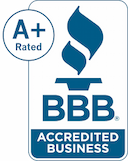A Guide to Alcohol & Drug Rehab: Pittsburgh
Finding the right addiction recovery program for you or your loved one can be a daunting task. The sheer number of facilities or programs in your area can make it challenging to determine which treatment center is best equipped to provide the care you need.
In the Pittsburgh area, there are over 100 treatment centers within a 50-mile radius of the city. 1 Our Pittsburgh rehab guide will help you find the right addiction treatment facility for you.
Drug & Alcohol Rehab Info for Pittsburgh, PA
Amenities can make a big difference in a patient’s recovery experience. Because addiction treatment often involves high levels of emotional and physical stress, a comfortable environment where patients can relax and put their focus into their recovery is vital.
In addition to rooms and extracurricular activities, you should also consider the program’s steps to create a safe recovery environment for its patients. Addiction treatment requires comprehensive supervision in order to prevent relapse and manage any issues that arise. You can ask staff to discuss facility rules and regulations with you to ensure you’re entering or putting your loved one in a safe program.
Types of Addiction Treatment to Consider
Another factor to consider when looking for a treatment program is the continuum of rehab care offered by a facility. Not all patients have the same medical or substance abuse history. The best recovery programs will provide a comprehensive assessment for patients before enrollment that will help determine which program is best suited to their needs. Some of the most common levels of care are:
- Medical Detox. This is the initial stage of many treatment programs. Detox is a vital element of successful addiction recovery for many people, and it should be conducted in a safe and effective manner. Medical staff are on-site to oversee the detox process to ensure that patients are not exhibiting any life-threatening symptoms and to manage any severe symptoms and complications
- Inpatient Treatment. Inpatient treatment programs are the most intensive and immersive form of care offered by recovery programs. These programs are designed to provide patients with live-in arrangements with an intensive recovery program. Inpatient programs also allow patients to develop essential peer-to-peer connections with others in recovery.
- Partial Hospitalization Programs. Partial hospitalization programs might be ideal for those seeking a more moderate and less immersive treatment than inpatient programs but more thorough than other outpatient programs. These programs offer intensive programming most days of the week but allow for the patient to continue living at home.
- Outpatient Rehab. Outpatient programs are not as comprehensive as inpatient programs. Intensive outpatient programs are more structured and offer more treatment hours per week than standard therapy, which may involve as little as one hour per week. Often, outpatient therapy is part of an aftercare plan.
How Much Does Drug & Alcohol Rehab Cost in Pittsburgh?
When looking for the addiction treatment facility that is right for you, it’s important to find a program that accepts your insurance coverage if you’re concerned about the out-of-pocket costs. Prior to enrolling in a program, you should also check with your insurance provider to see what types of treatment your plan will cover.
If you end up having out-of-pocket expenses, some treatment centers offer payment options designed to help you pay for rehab. Sunrise House Treatment Center we will work with your provider to help you use health insurance to pay for your substance abuse treatment. We are in-network with many popular providers, including:
- Humana
- Cigna
- Aetna
- Optum
- GHI
- Meritain
- BlueCross BlueShield
- Tricare
Enter your information in our to find out exactly what your plan covers.
Are You Struggling With Addiction?
Drug & Alcohol Abuse Statistics in Pittsburgh
What Makes Us Unique
Industry Accredited, Exceptional Care
We’ve Supported Thousands With Their Recovery
American Addiction Centers (AAC) is committed to delivering original, truthful, accurate, unbiased, and medically current information. We strive to create content that is clear, concise, and easy to understand.
While we are unable to respond to your feedback directly, we'll use this information to improve our online help.


